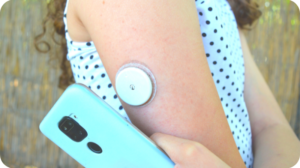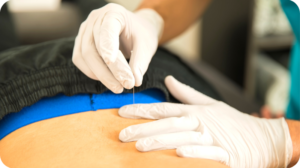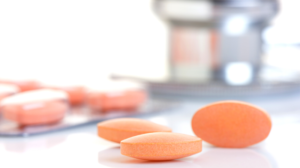Vitamin D is crucial to bone health and immunity. Many people don’t realize the vital role it plays. Unfortunately, though, living with a persistent deficiency can put you at risk for a range of health issues such as cancer, infections, brittle bones, and heart disease.

The incidence of vitamin D deficiency has increased along with the awareness of skin cancer. That’s because you get most of your vitamin D from sunlight—specifically UVB rays—which specialized skin cells use to synthesize vitamin D. Sunscreen, sun-blocking clothing, and a sedentary indoor lifestyle all contribute to inadequate vitamin D levels. (Some foods supply the vitamin in small amounts, but it is extremely difficult to satisfy the minimum daily requirement by diet alone.) The further north you live, the more at risk of a deficiency you are.
The Role of Vitamin D
Vitamin D is fat soluble and responsible for absorbing and retaining calcium and phosphorus. This means it is crucial for proper bone growth and joint health. The vitamin is also linked to immune system function and cardiovascular health. Appropriate levels of vitamin D may help prevent or alleviate asthma, diabetes, atherosclerosis, and rheumatoid arthritis.
Preliminary research indicates that vitamin D may also play a role in preventing some types of cancer, including prostate, colon, and breast cancer. Lab and epidemiological studies have shown that the vitamin reduces cancer cell growth, inflammation, and incident of infections.
Deficiency Causes and Symptoms
Poor diet, age, lack of sun exposure, and declining kidney and liver function may all play a role in vitamin D deficiency. Obesity can also have an impact because a higher number of fat cells may isolate available vitamin D. Any kidney or liver dysfunction can affect the production of enzymes necessary for the body to synthesize vitamin D. Gastrointestinal disorders and issues can also lead to a deficiency. This is a concern for anyone living with Crohn’s disease, IBS, or celiac disease.
Unfortunately, vitamin D deficiency can be difficult to diagnose because the symptoms are often vague and general, mimicking many other conditions. They include:
- Unexplained fatigue.
- Muscle weakness, muscle aches, or muscle cramps.
- Bone pain.
- Mood changes.
You likely won’t realize that you’re deficient unless you have your levels checked with a blood test.
Recommended Daily Dose
Consult with your doctor when checking your blood test vitamin D levels. The test results should be compared to the FDA’s recommended daily dose range (minimums and maximums are listed below).
- 400 to 1500 IU for infants up to 12 months old.
- 600 to 4000 IU for adults younger than 70
- 800 to 4000 IU for adults over 70
It is possible to over-supplement with vitamin D, although it is rare. (You cannot get too much vitamin D from sunlight exposure.)
Symptoms of Vitamin D overdose include:
- Calcium buildup (hypercalcemia)
- Unexplained weight loss
- Irregular heartbeat
- Kidney damage
- Nausea
- Poor appetite
- Constipation
- Mental confusion
Never take supplements without consulting your doctor. Doctors may take into consideration dietary restrictions and other related issues. If you do decide to take vitamin D supplements, choose a reputable brand that adheres to the FDA’s Current Good Manufacturing Practices (CGMP), and is certified for quality and safety by a third-party independent lab.
Share some love if you like this post!





